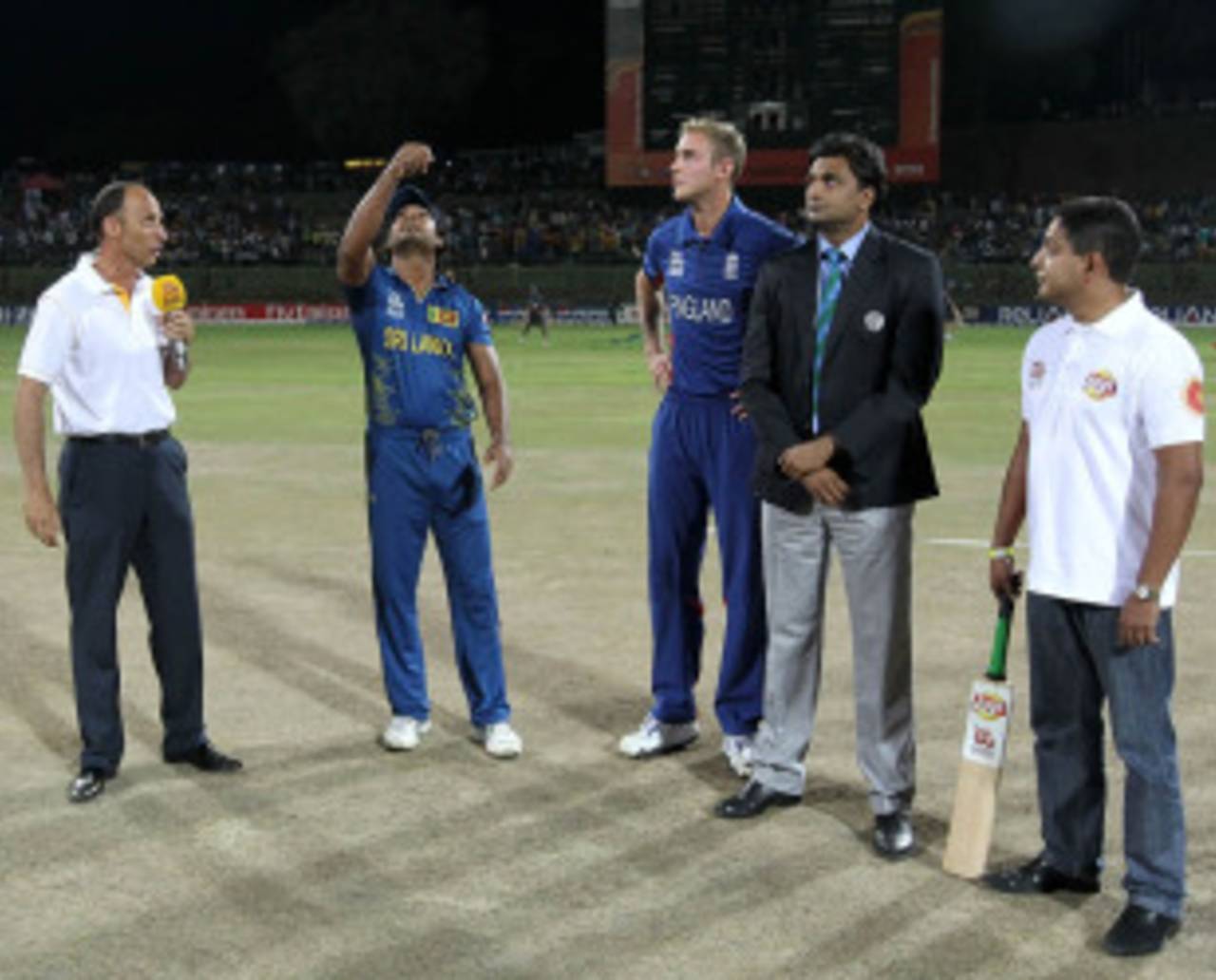In Sri Lanka's
final Super Eights match in the 2012 World Twenty20, Kumar Sangakkara strode out for the toss in place of
Mahela Jayawardene. "Mahela has lost three tosses in a row," was the line Sangakkara tried to peddle, but it was clear that trickery was afoot. When Sri Lanka came out to field, Jayawardene directed the fielders, changed the bowlers and generally called the shots.
Social media quickly figured Jayawardene was dodging a possible second over-rate infringement, which would lead to a suspension, and lit up with debate. Some condemned Sri Lanka's captain for flouting the rules, others praised him for it. After the match,
Jayawardene confirmed, with more than a hint of glee at having cheated the system, that the switch had aimed to ensure he did not miss the semi-final.
As the rule stands, if a captain oversees two over-rate offences in the same format within 12 months, he is forced to miss his next match in the same format. In addition, the entire team is docked 10% of their match fee for every over that is deemed to be tardy, and the captain is fined twice that amount.
Sri Lanka's ruse had been conceived by the team manager because in the
previous match they were found to be one over short of the minimum over rate. Their match against West Indies was not noticeably duller because of a slightly slower pace of play, nor had there been any inkling an infringement had occurred until the ICC's release came through. Yet if Sri Lanka had transgressed equally indiscernibly under Jayawardene's watch in their next game against England, or indeed in the semi-final against Pakistan, they would have lost their captain and best T20 batsman for a crucial match in a major tournament. The penalty seems too severe for the crime.
More frustratingly, the rule actually seems to defeat the purpose for which it was drawn up. If the rule-makers had hoped to make cricket more watchable by requiring quick play, they cannot punish violations by compromising the quality of the next match, which they do when they ban a key player.
In June last year, Pakistan lost Misbah-ul-Haq for the first Test against Sri Lanka for an over-rates infringement. What followed
in Galle was their
only Test loss of the year. There is no guarantee that Misbah would have made any difference to the result, but as their coach Dav Whatmore
pointed out, Sri Lanka couldn't claim to have beaten Pakistan's best team.
The rule is likely born of broadcasters' demands, but perhaps harsher fines can serve as an acceptable deterrent for captains instead. Whatever the solution, the current rule, which aims to enhance the game, ends up devaluing it.
